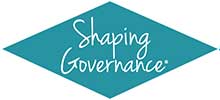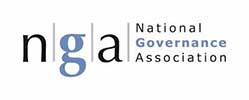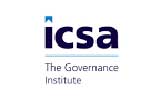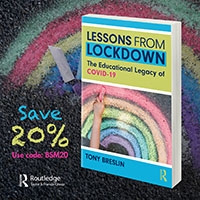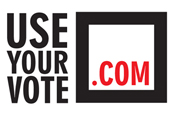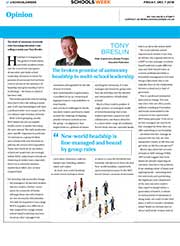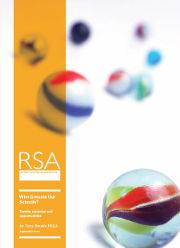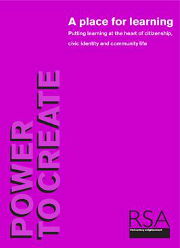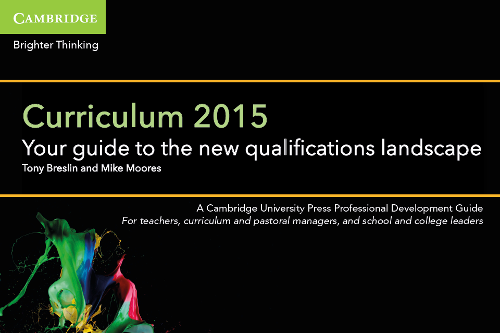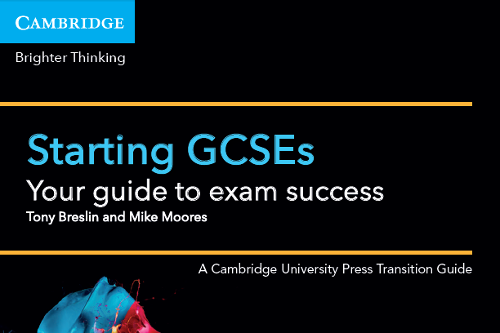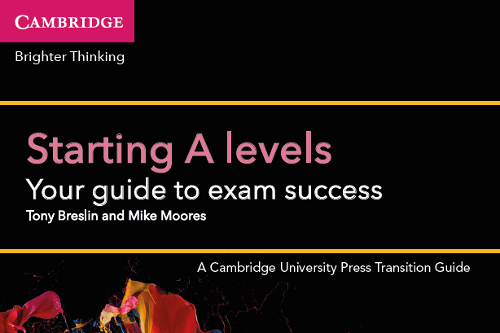












Of 268 executive directorships across the FTSE 100, only 26 (9.7%) are held by women
WISE, 2018

"Good governance enables a school, charity or business to be the best it can be"
Martin Matthews, National Leader of Governance
National Leader of Governance
Transform Governance is a joint venture between Breslin Social Impact and Permuto Consulting
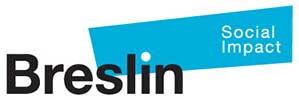

Need consultancy support? We have access to a range of specialists across sectors, across functions, and across the UK and beyond. Contact us to explore possibilities.
Schooling the Pandemic
Monday 18th January 2021
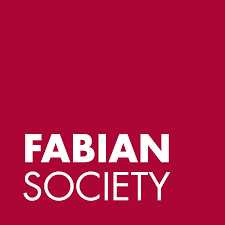
The educational impacts of the pandemic
Much of the debate about the educational impact of COVID-19 has rightly focused on the differential impact of the virus, especially on those children and young people from black and minority ethnic communities, on those who are disadvantaged and on those who are otherwise deemed ‘vulnerable’.
A second set of discussions has concentrated on the pedagogies of the pandemic – for instance, the loss of collaborative work in socially spaced classrooms, the re-emergence of teacher assessment in light of the cancellation of written examination papers for a second year, and the emergence of blended and online learning. As the potential of some of these innovations is becoming clear, attention is turning to how these and other strategies might be embraced in the longer term.
A third theme has been around the comparative concerns about curriculum ‘catch-up’ and psychological ‘recovery’. To reflect on the social impact of the pandemic on child development is not to diminish the issue of lost learning, although it often feels that this is the way that the debate is being framed.
A fourth, and more nuanced area is an assessment of the outliers of lockdown: those young people who have thrived during lockdown, those who have enjoyed, and benefitted from, the autonomy of learning beyond the school gates, and those who find themselves reflecting on the efficiency of schooling, not because they are behind in their learning but because they are ahead.
And this has been amongst the factors spurring a fifth debate around the comparative efficacy of school and home-based learning; whatever the outcome of this discourse, it is likely that the future is blended, and that home-schooling is likely to be a part of the new mainstream, even if it does not quite constitute the new normal. And this, in turn, takes us back to issues of inequality, cultural capital and digital access; or to locate this in what might be considered a Fabian lexicon, the challenge of how one delivers a comprehensive education for all in a blended world, when the home circumstances of learners differ so widely, a challenge that for me has never been adequately addressed by those, often on the left, who, following Illich, want to de-school society.
The multiple purposes of schooling
Alongside these themes, lockdown has caused us to reflect on the multiple purposes of schooling – not just its educational role but its vital function in the social development of young people and its centrality in supporting the participation of parents in employment; should not schools gain credit for their roles in these respects, as well as the educational performance of their students? Just as employment has impacts far wider than those deemed ‘economic’ – notably in respect of wellbeing, the opportunity for sociability and self-esteem – schooling has many functions beyond the narrowly educational, not that you’d know it in our culture of tests, targets and tables. This isn’t to play down the core educative purpose of schooling – it would be disingenuous for an educationalist to do so – but it is to recognise the full value of schooling and the wider contribution of all who work in education not just to learning but to society.
These are among the themes that I explore in my new book, Lessons From Lockdown: the educational legacy of COVID-19 which has recently been published by Routledge. In it, I track the early experience of lockdown through to the start of the current academic year. In its upcoming sequel: Bubble Schools: the long road from lockdown, due towards the close of this year, I seek to capture and curate the experience of the pandemic through to August 2021. Both books do so through the voices of those at the thick end of the action – pupils, parents and educational professionals – with both based on a mix of extended conversations, face-to-face interviews and focus group discussions.
The making of educational policy
In closing, though, I want to pose a different set of questions, a set that should be of concern to all with an interest in education, and to all Fabians, a set of questions that has been an obsession of mine since qualifying as a teacher and taking my first tentative steps into the classroom and staffroom in September 1987: how we develop and deliver educational policy.
Even when one acknowledges that these are unprecedented times, and this an unprecedented pandemic, the management of the government’s policy response to it, in educational terms, has been shambolic; to give but a few examples: the chaotic on-off ‘re-opening’ of schools in June 2020, the ongoing issues around support for children entitled to free school meals, including the recent discussion about the paltry portions in at least some of the ill-named ‘hampers’ distributed to our most disadvantaged families, the 2020 grading crisis and the grudging U-turn over the primacy of the Centre Assessed Grading process, the determination to persist with written papers and standard examinations against a backdrop of local lockdowns, tiers and ‘bubbles’ during the 2020 Autumn Term, ahead of the U-turn on this in January 2021, the evident absence of a ‘Plan B’ to accommodate this possibility, as the Secretary of State had claimed to be in place throughout the Autumn, with conversations with Ofqual on the strategy to be adopted only being initiated almost two weeks after the announcement that written papers would not take place, the failure to address the digital exclusion of those from the poorest homes during the relative ‘downtime’ during lockdowns one and two, the Department for Education threat to ‘send in the lawyers’ against secondary schools, trusts and local authorities that had proposed switching to blended learning in the final week before the Christmas break, before instructing all schools to close and switch to blended learning a day into the Spring Term, and finally, the announcement of this decision, barely 36 hours after the PM had spoken of the safety of schools on The Andrew Marr Show, asserting that schools would not close.
Moreover, and more galling, was the absence from the policy table of key stakeholders at key points in the process, the paucity of the debate around issues such as assessment and curriculum ‘catch-up’, and the constant restatement of essentially ideologically but unresearched positions, for instance on the supremacy of unseen papers as a mode of examination assessment and the subjectivity of teacher assessment, dutifully and disappointedly repeated by leaders at Ofsted and Ofqual, and any Minister available to occupy a TV or radio interview slot or pen a newspaper column. To allow these proclamations to go unchallenged is to accept that schooling after the crisis will be exactly as it was beforehand; that would be to cast aside an important and potentially positive educational legacy of this terrible period: that system-shocks such as that provided by the pandemic can drive creativity and innovation. We must, as progressives, be brave enough to allow them to.
Big change, though, needs levels of trust and partnership that recent ministerial and departmental practice has done nothing to enhance. In fact, it is reasonable to surmise that relations between the profession and the Department for Education and its agencies are at an all-time low; the damage resulting from the bungling, low trust culture of recent months is likely to take years to repair, and will need to be a priority for the next Secretary of State for Education. But in the longer run we need a wider re-appraisal of how policymaking and policy implementation takes place. The forced implementation of inoperable strategies dreamed up by a Department, a set of agencies and a Ministerial ‘SPAD-ocracy’ far too low on (if not completely devoid of) any experience of how schools operate on a day-to-day basis, never mind in mid-lockdown, is no way to effect change of any form, or at any time.
Instead, we need an approach to educational policymaking that is inclusive and informed – inclusive in that policymaking is generated by a culture that is high trust, collaborative and engaging of stakeholders on the ground; informed in that it is rooted in the experience of pupils, parents and educational professionals over the past ten months, the work of the educational research community, and a newly reconstituted expert body focused on pedagogy, the curriculum and its assessment, one that brings together the biggest brains in, and the finest exponents of, curricular practice to fill the void that has existed since Michael Gove first expressed his long-held disdain for experts by abolishing the Qualifications and Curriculum Development Agency almost a decade ago – one of his first acts as Education Secretary.
Right now, we seem some distance from this inclusive, informed, collaborative, high trust Nirvana, but the message is that, as Fabians, we need to focus as much in the methodology of our policymaking as its content. In practical terms, this means having the confidence to share and mould our proposals with researchers, professionals and service users, resisting the urge to impose our preferred solutions (however longstanding our commitment to these) when they caution that we might need to go about our business differently. We might not achieve all of policy objectives, but those that we do put in place will sustain for the long term with the buy-in of those on who they impact most: that’s not just better policymaking, it’s good news for an educational community driven to distraction by reforms that it knows will not work, and it’s better for our politics too.
Tweet Share on Facebook